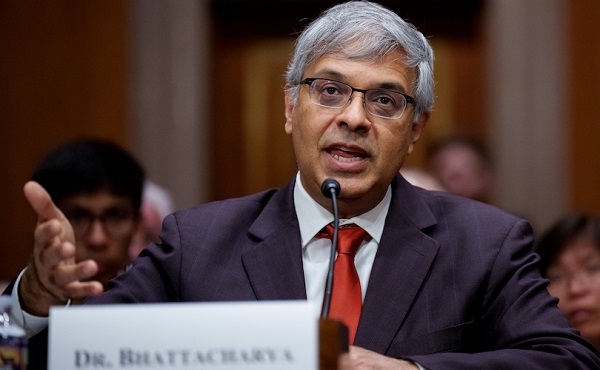Alberta
Whitecourt RCMP – police presence in Blue Ridge are in Woodlands County – Update #3 – Barrhead Incident

June 19, 2020
Whitecourt RCMP – police presence in Blue Ridge are in Woodlands County – Update #3 – Barrhead Incident
Barrhead, Alta. – On June 18, 2020, at approximately 9 p.m., Barrhead RCMP received a complaint of a break and enter to a residence located in the area of Secondary Highway 658 near Fort Assiniboine, Alta. The suspect vehicle attempted to ram the complainant’s vehicle in an attempt to flee the property.
Barrhead RCMP attempted to locate the suspect vehicle and the suspect vehicle came to rest in a ditch in the area of the Athabasca river southwest of Fort Assiniboine, before both suspects fled into the forest. RCMP Air Services and the RCMP Police Service Dog was utilized and one of the suspects was taken into custody without incident. The second suspect remained at large.
Further investigation has resulted in the second suspect being identified as Bradley Gordon Duff 35, of no fixed address.
A 28-year-old female from Whitecourt, Alta. remains in custody awaiting a bail hearing.
Barrhead RCMP’s investigation into this matter continues.
The public are warned not to approach Duff as he is believed to be possibly armed and dangerous. Barrhead RCMP are seeking the public’s assistance in locating Duff’s whereabouts as he is a suspect in this break and enter investigation and has outstanding arrest warrants on unrelated matters.
If anyone has information about Bradley Duff’s whereabouts, please contact Barrhead RCMP at 780-674-4848, 911 or your local police. If you wish to remain anonymous, you can contact Crime Stoppers at 1-800-222-8477 (TIPS), online at www.P3Tips.com or by using the “P3 Tips” app available through the Apple App or Google Play Store.”
Background:
June 15, 2020
Whitecourt RCMP – police presence in Blue Ridge are in Woodlands County – Update #2
High Prairie, Alta. – On June 14, 2020, High Prairie RCMP received a report of a sighting of a male believed to be Bradley Duff during the night / early morning hours in the vicinity of Range Road 185 and Township Road 742 in Big Lakes County, Alta. This location is 3 km’s southwest of Triangle Hall, located 20 kms west of High Prairie on Highway 2, or 25kms south of Mclennan, Alta., on Highway 2.
Duff is believed to have been wearing all dark or black clothing and a red bandana covering his face and was in the process of removing items from a white Dodge truck parked off the roadway. The same white Dodge truck was later reported to Emergency Services by a passerby to be on fire on June 15, 2020, at 12:30 a.m.
Further investigation determined the Dodge truck had been stolen out of Whitecourt, Alta., and Bradley Duff was the last person known to have been seen driving it.
High Prairie RCMP Detachment has deployed multiple police resources to the area, including RCMP Police Dog Services Unit to conduct a search for Duff.
RCMP are asking that the public please avoid the area and refrain from posting photos and/or video on social media.
An update will be provided when available.
The public are warned not to approach Duff as he is believed to be possibly armed and dangerous. Duff continues to have warrants for his arrest. If anyone has information about Bradley Duff’s whereabouts, please contact Whitecourt RCMP at 780-779-5900 or your local police. If you wish to remain anonymous, you can contact Crime Stoppers at 1-800-222-8477 (TIPS), online at www.P3Tips.com or by using the “P3 Tips” app available through the Apple App or Google Play Store.”
June 9, 2020
Whitecourt RCMP – police presence in Blue Ridge are in Woodlands County – Update
Whitecourt, Alta. – Whitecourt RCMP members are no longer in the area of Blue Ridge; however, their investigation continues.
On June 9, 2020, at 5:49 a.m., Whitecourt RCMP received a complaint of a vehicle in the ditch with a passenger unconscious with Emergency Services on scene. When the male became conscious, he fled into a forested area.
Whitecourt RCMP’s investigation revealed that the vehicle was stolen out of Edmonton in April 2020. Items in the vehicle and a description of the suspect who fled the scene led RCMP to believe that the suspect is Bradley Duff (35) of no fixed address. Duff is currently on outstanding warrants on other matters.
Whitecourt RCMP, with the assistance of RCMP Police Dog Services and RCMP Air Services conducted a lengthy search of the area and inquiries with residents of the area; however, were unable to locate the suspect.
Whitecourt RCMP are seeking the public’s assistance in locating Duff’s whereabouts as he is a suspect in the stolen vehicle investigation and has outstanding arrest warrants on unrelated matters. RCMP caution the public not to approach Duff as he is considered dangerous. Duff has been known to have access to firearms in the past; however, it is unknown if he is armed at this time.
If anyone has information about Bradley Duff’s whereabouts, please contact Whitecourt RCMP at 780-779-5900 or your local police. If you wish to remain anonymous, you can contact Crime Stoppers at 1-800-222-8477 (TIPS), online at www.P3Tips.com or by using the “P3 Tips” app available through the Apple App or Google Play Store.”
June 9, 2020
Whitecourt RCMP – police presence in Blue Ridge are in Woodlands County
Whitecourt, Alta. – Whitecourt RCMP would like to advise the public that there is a heavy police presence in the area of Blue Ridge in Woodlands County between Township Road 594 and 592 near Range Road 102 outside Whitecourt.
RCMP are asking that the public please avoid the area and refrain from posting photos and/or video on social media.
An update will be provided when available.
Public information and warning: Man accused of kidnapping and sexual assault on child released
2025 Federal Election
Next federal government should recognize Alberta’s important role in the federation

From the Fraser Institute
By Tegan Hill
With the tariff war continuing and the federal election underway, Canadians should understand what the last federal government seemingly did not—a strong Alberta makes for a stronger Canada.
And yet, current federal policies disproportionately and negatively impact the province. The list includes Bill C-69 (which imposes complex, uncertain and onerous review requirements on major energy projects), Bill C-48 (which bans large oil tankers off British Columbia’s northern coast and limits access to Asian markets), an arbitrary cap on oil and gas emissions, numerous other “net-zero” targets, and so on.
Meanwhile, Albertans contribute significantly more to federal revenues and national programs than they receive back in spending on transfers and programs including the Canada Pension Plan (CPP) because Alberta has relatively high rates of employment, higher average incomes and a younger population.
For instance, since 1976 Alberta’s employment rate (the number of employed people as a share of the population 15 years of age and over) has averaged 67.4 per cent compared to 59.7 per cent in the rest of Canada, and annual market income (including employment and investment income) has exceeded that in the other provinces by $10,918 (on average).
As a result, Alberta’s total net contribution to federal finances (total federal taxes and payments paid by Albertans minus federal money spent or transferred to Albertans) was $244.6 billion from 2007 to 2022—more than five times as much as the net contribution from British Columbians or Ontarians. That’s a massive outsized contribution given Alberta’s population, which is smaller than B.C. and much smaller than Ontario.
Albertans’ net contribution to the CPP is particularly significant. From 1981 to 2022, Alberta workers contributed 14.4 per cent (on average) of total CPP payments paid to retirees in Canada while retirees in the province received only 10.0 per cent of the payments. Albertans made a cumulative net contribution to the CPP (the difference between total CPP contributions made by Albertans and CPP benefits paid to retirees in Alberta) of $53.6 billion over the period—approximately six times greater than the net contribution of B.C., the only other net contributing province to the CPP. Indeed, only two of the nine provinces that participate in the CPP contribute more in payroll taxes to the program than their residents receive back in benefits.
So what would happen if Alberta withdrew from the CPP?
For starters, the basic CPP contribution rate of 9.9 per cent (typically deducted from our paycheques) for Canadians outside Alberta (excluding Quebec) would have to increase for the program to remain sustainable. For a new standalone plan in Alberta, the rate would likely be lower, with estimates ranging from 5.85 per cent to 8.2 per cent. In other words, based on these estimates, if Alberta withdrew from the CPP, Alberta workers could receive the same retirement benefits but at a lower cost (i.e. lower payroll tax) than other Canadians while the payroll tax would have to increase for the rest of the country while the benefits remained the same.
Finally, despite any claims to the contrary, according to Statistics Canada, Alberta’s demographic advantage, which fuels its outsized contribution to the CPP, will only widen in the years ahead. Alberta will likely maintain relatively high employment rates and continue to welcome workers from across Canada and around the world. And considering Alberta recorded the highest average inflation-adjusted economic growth in Canada since 1981, with Albertans’ inflation-adjusted market income exceeding the average of the other provinces every year since 1971, Albertans will likely continue to pay an outsized portion for the CPP. Of course, the idea for Alberta to withdraw from the CPP and create its own provincial plan isn’t new. In 2001, several notable public figures, including Stephen Harper, wrote the famous Alberta “firewall” letter suggesting the province should take control of its future after being marginalized by the federal government.
The next federal government—whoever that may be—should understand Alberta’s crucial role in the federation. For a stronger Canada, especially during uncertain times, Ottawa should support a strong Alberta including its energy industry.
Alberta
Province announces plans for nine new ‘urgent care centres’ – redirecting 200,000 hospital visits

Expanding urgent care across Alberta
If passed, Budget 2025 includes $17 million in planning funds to support the development of urgent care facilities across the province.
As Alberta’s population grows, so does the demand for health care. In response, the government is making significant investments to ensure every Albertan has access to high-quality care close to home. Currently, more than 35 per cent of emergency department visits are for non-life-threatening conditions that could be treated at urgent care centres. By expanding these centres, Alberta’s government is enhancing the health care system and improving access to timely care.
If passed, Budget 2025 includes $15 million to support plans for eight new urgent care centres and an additional $2 million in planning funds for an integrated primary and urgent care facility in Airdrie. These investments will help redirect up to 200,000 lower-acuity emergency department visits annually, freeing up capacity for life-threatening cases, reducing wait times and improving access to care for Albertans.
“More people are choosing to call Alberta home, which is why we are taking action to build capacity across the health care system. Urgent care centres help bridge the gap between primary care and emergency departments, providing timely care for non-life-threatening conditions.”
“Our team at Infrastructure is fully committed to leading the important task of planning these eight new urgent care facilities across the province. Investments into facilities like these help strengthen our communities by alleviating strains on emergency departments and enhance access to care. I am looking forward to the important work ahead.”
The locations for the eight new urgent care centres were selected based on current and projected increases in demand for lower-acuity care at emergency departments. The new facilities will be in west Edmonton, south Edmonton, Westview (Stony Plain/Spruce Grove), east Calgary, Lethbridge, Medicine Hat, Cold Lake and Fort McMurray.
“Too many Albertans, especially those living in rural communities, are travelling significant distances to receive care. Advancing plans for new urgent care centres will build capacity across the health care system.”
“Additional urgent care centres across Alberta will give Albertans more options for accessing the right level of care when it’s needed. This is a necessary and substantial investment that will eventually ease some of the pressures on our emergency departments.”
The remaining $2 million will support planning for One Health Airdrie’s integrated primary and urgent care facility. The operating model, approved last fall, will see One Health Airdrie as the primary care operator, while urgent care services will be publicly funded and operated by a provider selected through a competitive process.
“Our new Airdrie facility, offering integrated primary and urgent care, will provide same-day access to approximately 30,000 primary care patients and increase urgent care capacity by around 200 per cent, benefiting the entire community and surrounding areas. We are very excited.”
Alberta’s government will continue to make smart, strategic investments in health facilities to support the delivery of publicly funded health programs and services to ensure Albertans have access to the care they need, when and where they need it.
Budget 2025 is meeting the challenge faced by Alberta with continued investments in education and health, lower taxes for families and a focus on the economy.
Quick facts
- The $2 million in planning funds for One Health Airdrie are part of a total $24-million investment to advance planning on several health capital initiatives across the province through Budget 2025.
- Alberta’s population is growing, and visits to emergency departments are projected to increase by 27 per cent by 2038.
- Last year, Alberta’s government provided $8.4 million for renovations to the existing Airdrie Community Health Centre.
Related information
-

 Alberta2 days ago
Alberta2 days agoAlberta Institute urging Premier Smith to follow Saskatchewan and drop Industrial Carbon Tax
-

 Health2 days ago
Health2 days agoHow the once-blacklisted Dr. Jay Bhattacharya could help save healthcare
-

 Alberta2 days ago
Alberta2 days agoAlbertans have contributed $53.6 billion to the retirement of Canadians in other provinces
-

 Alberta16 hours ago
Alberta16 hours agoProvince announces plans for nine new ‘urgent care centres’ – redirecting 200,000 hospital visits
-

 Energy2 days ago
Energy2 days agoPoll: Majority says energy independence more important than fighting climate change
-

 Business1 day ago
Business1 day agoFeds Spent Roughly $1 Billion To Conduct Survey That Could’ve Been Done For $10,000, Musk Says
-

 Addictions2 days ago
Addictions2 days agoShould fentanyl dealers face manslaughter charges for fatal overdoses?
-

 Health1 day ago
Health1 day agoRFK Jr. Drops Stunning Vaccine Announcement









